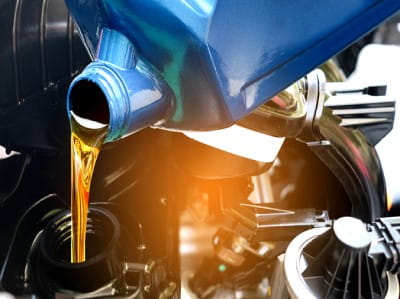Mark Madeja
Senior Specialist, Public & Government Affairs
O: (918) 748-1074
C: (918) 935-9318
Mark.madeja@aaaok.org
Majority of Respondents Concerned About Self-Driving Vehicle Safety
April 11, 2018 –– As the development and testing of autonomous vehicle technology continues to progress rapidly, drivers report that their greatest concerns about the introduction of autonomous vehicle technology are safety and reliability, a new consumer survey from AAA Oklahoma reveals.
According to a survey of Oklahoma drivers, nearly six out of ten respondents, 59 percent, said an autonomous vehicle’s safety and reliability are overwhelming concerns when it comes to adoption of the technology, followed by mechanical breakdowns and cost of repair (11 percent), and data and cybersecurity (seven percent).
Public Policy Polling conducted the survey of licensed drivers for AAA Oklahoma March 27 and 28, 2018, a week and a half after the highly publicized death of a pedestrian whom was struck and killed by an Uber self-driving vehicle in Tempe, Arizona.
In January 2018, AAA released the results of a nationwide poll regarding autonomous vehicles. In that poll, six out of ten U.S. drivers (63 percent) reported feeling afraid to ride in a fully self-driving vehicle. That result is a significant decrease from 78 percent in early 2017.
“It is difficult to say whether the incident in Arizona might have affected the way people answered questions about the introduction of autonomous vehicle technology, but it may have been on their minds,” said Leslie Gamble, AAA Oklahoma Public & Government Affairs. “Any crash involving an autonomous vehicle, especially involving death or injury, will receive heightened scrutiny; as well it should for the sake of safety. It is incumbent upon manufacturers, technology companies and regulators to continue to work toward ensuring new technology is safe and proper protections are in place for all road users,” said Gamble.
Many of today’s new vehicles have some of the same technology being used in autonomous or partly autonomous vehicles, such as lane departure warning, parking assist, adaptive cruise control, and crash avoidance braking. Fifty-two percent of respondents said they do not use these technologies, and, of those who do, the majority use primarily adaptive cruise control.
In an effort to meet specific local transportation challenges and introduce the public to the concept of autonomous vehicles, some jurisdictions are planning to operate an autonomous bus or shuttle in narrowly defined areas or to solve specific needs. However, the AAA survey revealed that the large majority of Oklahoma respondents, 75% would choose not to ride in a driverless car, bus, or shuttle if it were available in their location suggesting that broad public awareness and education campaigns will be crucial to the success of any such deployment.
One of the biggest questions about the impact of autonomous vehicle is, “How will they change the way people use their vehicles?” The answer to this question will have a significant impact on the way cities and towns plan and pay for their transportation needs in the future. When asked how their vehicle usage habits are likely to change in comparison to their current habits, the majority of respondents, 63 percent, said that they would likely use a driverless vehicle less than they use their current vehicle now. Another 18 percent said that they would use the driverless vehicle to transport them about the same amount and 10 percent said they would use the driverless vehicle to transport them more.
In order for autonomous vehicles to operate alongside each other on the highway, they need to exchange data regularly with other vehicles and roadway infrastructure. A clear majority 66 percent responded that they are very concerned about the security of the data sent to and from autonomous vehicles. Another 15 percent responded that they are somewhat concerned, 10 percent are not very concerned and six percent are not concerned at all.
If respondents in the survey are uncertain about the safety of autonomous vehicles, they have a pretty clear sense of who should be responsible if something goes wrong. When asked who should be responsible for liability while riding in a driverless vehicle, 34 percent believe the liability should rest with the car manufacturer, while 26 percent believe it should be the car owner. The remaining 21 percent believe it is the responsibility of the technology company while eight percent believe it should be the licensed driver.
The survey margin of error was +/-3.9%.
# # #
Related Articles
Leslie Gamble
Manager, Public & Government Affairs
O: (405) 753-8040
C: (405) 488-7611
Leslie.Gamble@aaaok.org







